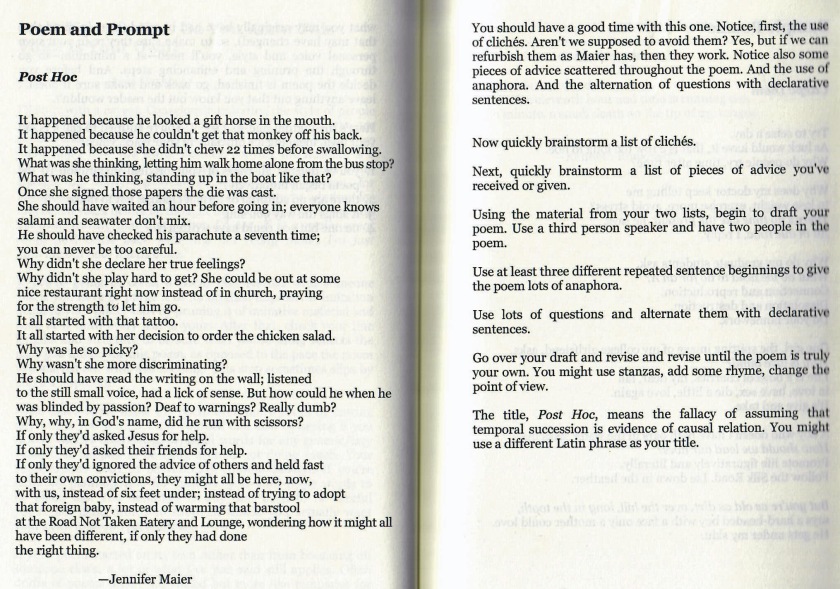
- Label this CLASSROOM ASSIGNMENT #12
- ANAPHORA: repetition of a word or words at the beginning of two or more successive verses, clauses, or sentences.
- Read the poem above (left) and follow the instructions (right).
- Brainstorm with a partner to create your lists.
- Your poem must be at least 10 lines long.
- Next, write an ekphrastic poem. Ekphrasis sounds kind of complicated, but it’s just a fancy word for using a piece of art to inspire a poem. Use one of the images below to write your poem.
- As with the cliche poem above, use ANAPHORA.
- Your poem must be at least 10 lines long.
- If you can’t finish both poems in class, finish them for homework.
- Bring your textbook to our next class.
Some thoughts on how to begin your ekphrastic poem
- List the first words that come to mind when you look at this artwork.
- PLOT: What is happening in this artwork? What story is being told?
- CHARACTER: Who or what is the subject of the artwork? How would you describe them?
- SETTING: What is the mood of the artwork? What sounds, smells, feelings, tastes could you associate with it?
- How does this artwork connect with you personally? Why did you choose it?
- MAIN IDEA: Now that you have closely observed the artwork, how would you summarize its main idea?
SAMPLE EKPHRASTIC POEMS BASED ON “LANDSCAPE WITH THE FALL OF ICARUS”:
Landscape with the Fall of Icarus

WAITING FOR ICARUS by Muriel Rukeyser
He said he would be back and we’d drink wine together
He said that everything would be better than before
He said we were on the edge of a new relation
He said he would never again cringe before his father
He said that he was going to invent full-time
He said he loved me that going into me
He said was going into the world and the sky
He said all the buckles were very firm
He said the wax was the best wax
He said Wait for me here on the beach
He said Just don’t cry
I remember the gulls and the waves
I remember the islands going dark on the sea
I remember the girls laughing
I remember they said he only wanted to get away from me
I remember mother saying: Inventors are like poets, a trashy lot
I remember she told me those who try out inventions are worse
I remember she added: Women who love such are the worst of all
I have been waiting all day, or perhaps longer.
I would have liked to try those wings myself.
It would have been better than this.
TIP
Tip: Use Concrete Words Instead of Abstract Words.
Concrete words describe things that people experience with their senses.
- orange
- warm
- cat
A person can see orange, feel warm, or hear a cat.
Poets use concrete words help the reader get a “picture” of what the poem is talking about. When the reader has a “picture” of what the poem is talking about, he/she can better understand what the poet is talking about.
Abstract words refer to concepts or feelings.
- liberty
- happy
- love
“Liberty” is a concept, “happy” is a feeling, and no one can agree on whether “love” is a feeling, a concept or an action.
A person can’t see, touch, or taste any of these things. As a result, when used in poetry, these words might simply fly over the reader’s head, without triggering any sensory response. Further, “liberty,” “happy,” and “love” can mean different things to different people. Therefore, if the poet uses such a word, the reader may take a different meaning from it than the poet intended.
Change Abstract Words Into Concrete Words







